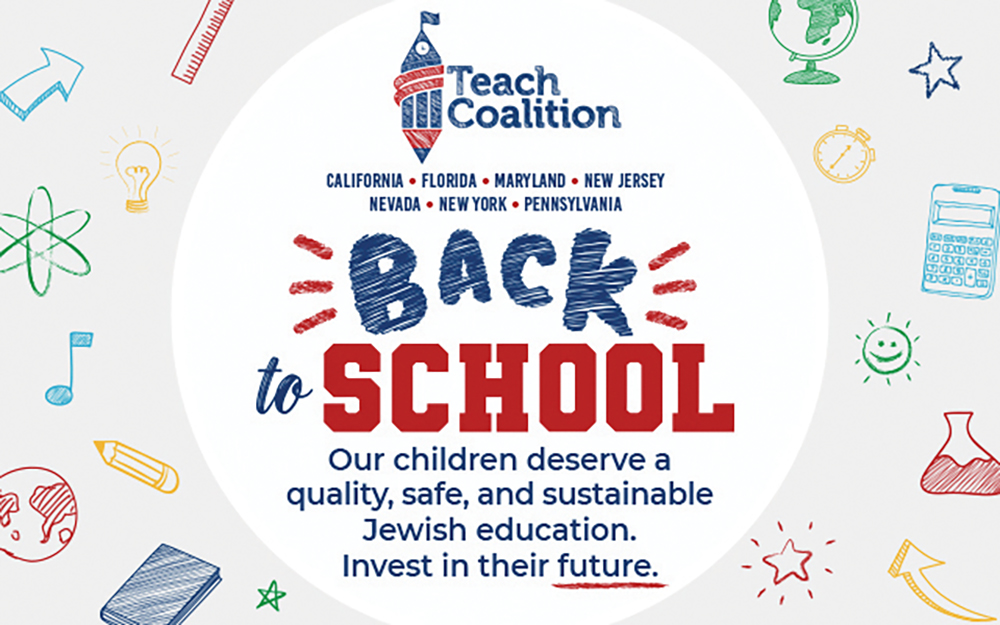
Just a few years ago, Sam F.* was failing at least two subjects when he enrolled in a STEM elective at his New Jersey yeshiva. The program introduced a whole new world to Sam, who developed a passion for STEM (science, technology, engineering, math), and his success in that class spread to other academic areas. By the end of the year, he had turned his grades around from a D average to a B average, a change largely attributed to the influence of STEM.
This isn’t just happening for Sam. Through STEM, students who previously struggled with low self-esteem are building confidence and creative skills. Many are also carrying their STEM successes through to the rest of their educational experience and beyond.
This game-changing curriculum comes thanks to government funding in New York and New Jersey. New Jersey’s program, which was introduced in 2019, brings public school teachers into nonpublic schools at no extra cost to schools or their families. This year, 110 teachers are enrolled in the program, servicing 41 yeshivas and Jewish day schools in the state. And in New York, $75.5 million in funding goes directly to support STEM programming in nonpublic schools, including textbooks, lab supplies and other equipment. Also adding to the educational experience of students is a brand-new $5 million art and music program that just passed in New York.
And yet, STEM, art and music are just some of the programs set to make an impact in the 2024-2025 school year.
Since 2013, Teach Coalition has worked alongside community advocates and legislative champions to help secure funding for yeshivas and Jewish day schools. Now, following historic state and federal support across multiple states, students are going back to school safer and with more educational opportunities than ever before.
This includes security funding—which has been even more critical in the wake of alarming levels of antisemitism—and will increase in states across the country following the advocacy efforts of thousands who have sent letters, met with legislators, gone on missions to state capitals, and more.
Ultimately, over $310 million in state and federal security funding was secured this year for vulnerable institutions.
New York saw a $35 million increase across two key programs for a total of $105 million, representing the largest state security funding for nonpublic schools and community centers in the U.S.. California made history by introducing $160 million in security funding, while the Nevada legislature passed a $750,000 security bill specifically for Jewish day schools in the state. In Pennsylvania, nonpublic schools will soon be able to access an additional $24.1 million for security.
For Florida families, this funding now includes a previously unaddressed vulnerability: long carpool lines outside schools. In addition to allocating $10 million for security hardening at schools, the state has approved an additional $10 million transportation program to resolve carpool-related security concerns.
“With the rise of antisemitism in the country, I have been very worried about my children’s safety, especially while at their Jewish school,” said Amber Schwarz, a day school parent in South Florida. “The new funding for security and transportation has helped alleviate those fears because I know that my children’s school has the resources it needs to keep my children safe.”
Finally, state scholarships have transformed the accessibility of yeshivas and Jewish day schools in Florida and Pennsylvania. In fact, according to a new study from Teach Coalition’s Office of Jewish Education Policy and Research, more children in Florida are getting a Jewish education than ever before—largely, it concluded, due to the increasing availability of state scholarships.
In addition to universal scholarships now saving families an average of $7,800 per child, Florida’s Services for All initiative has saved parents of children with disabilities a collective $200,000 last year by helping them obtain free evaluations through the school district.
As one parent put it, “Teach FL helped tremendously to procure reading services for my son through our county and I am so appreciative for all they have done on his behalf.”
In Pennsylvania, funding for tax credit scholarship programs (EITC, OSTC, PreK, EDS) increased by $75 million this year, going from $480 million to $555 million. The impact is huge, providing scholarships to 60% of Jewish day school students for their Jewish day school or yeshiva.
As the new school year arrives with fresh possibilities, these initiatives are making a difference in our communities, setting our students, and our schools, up for another year of success.











